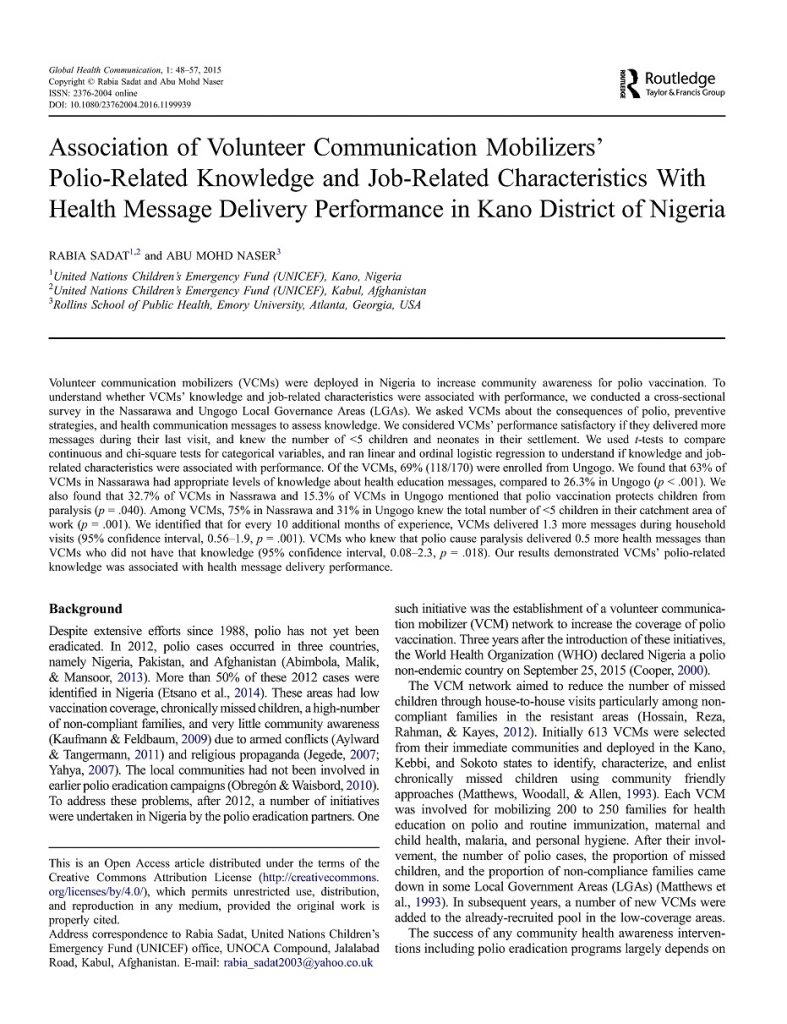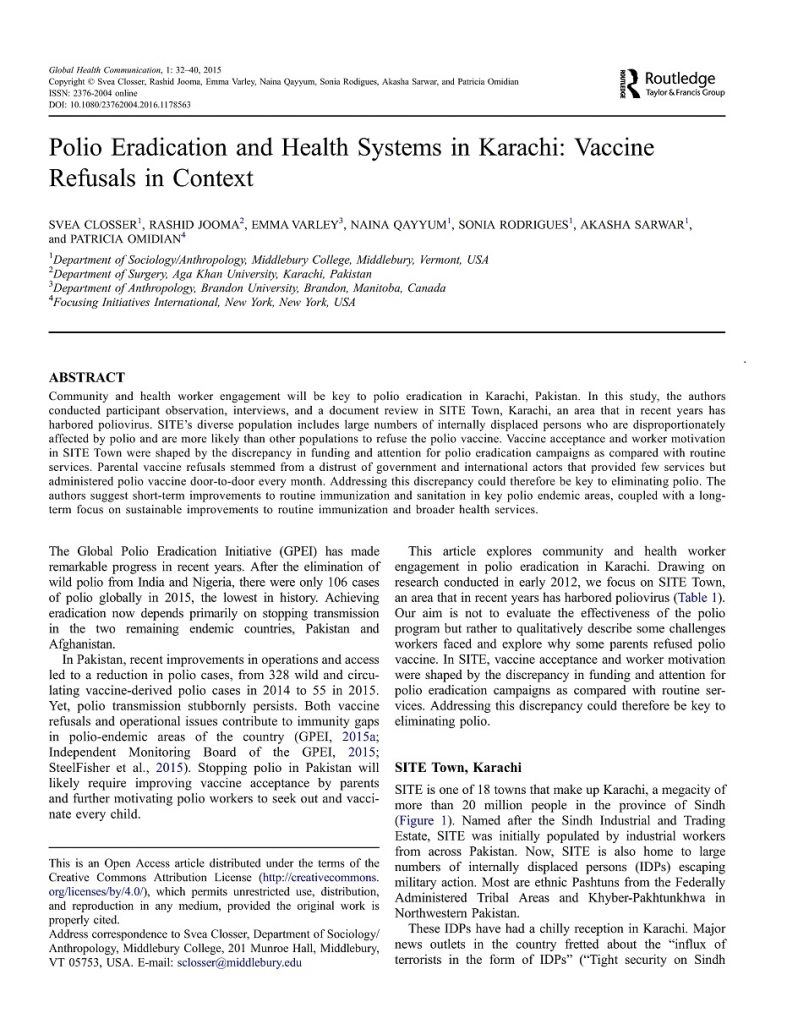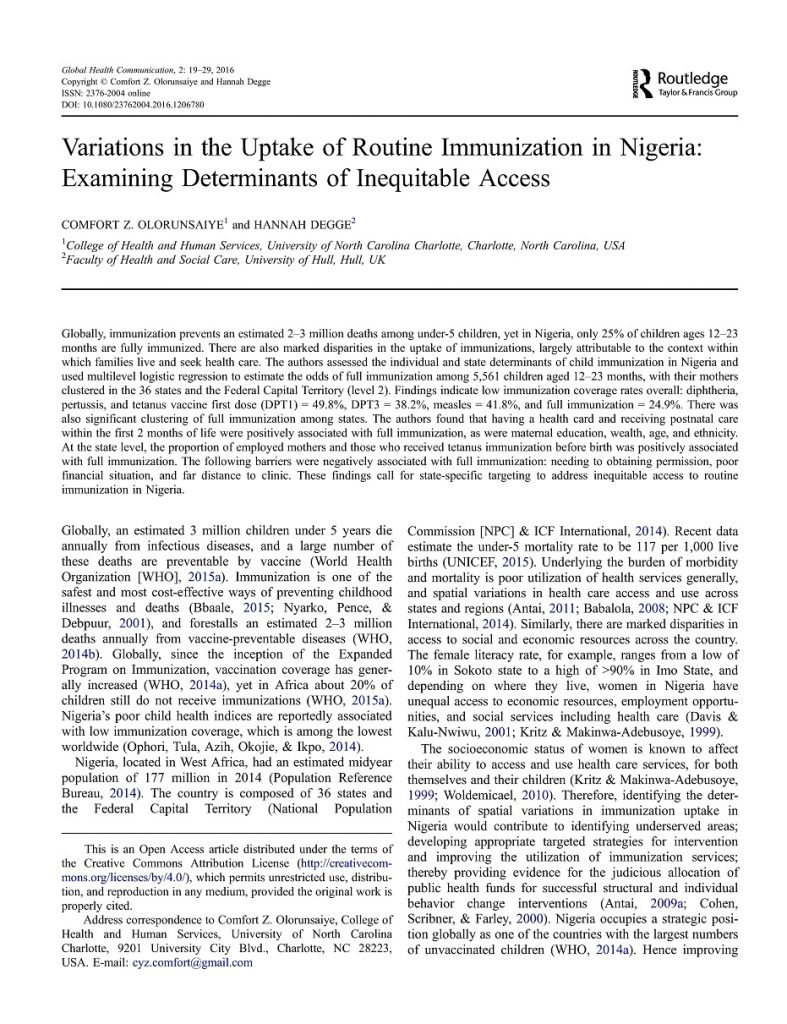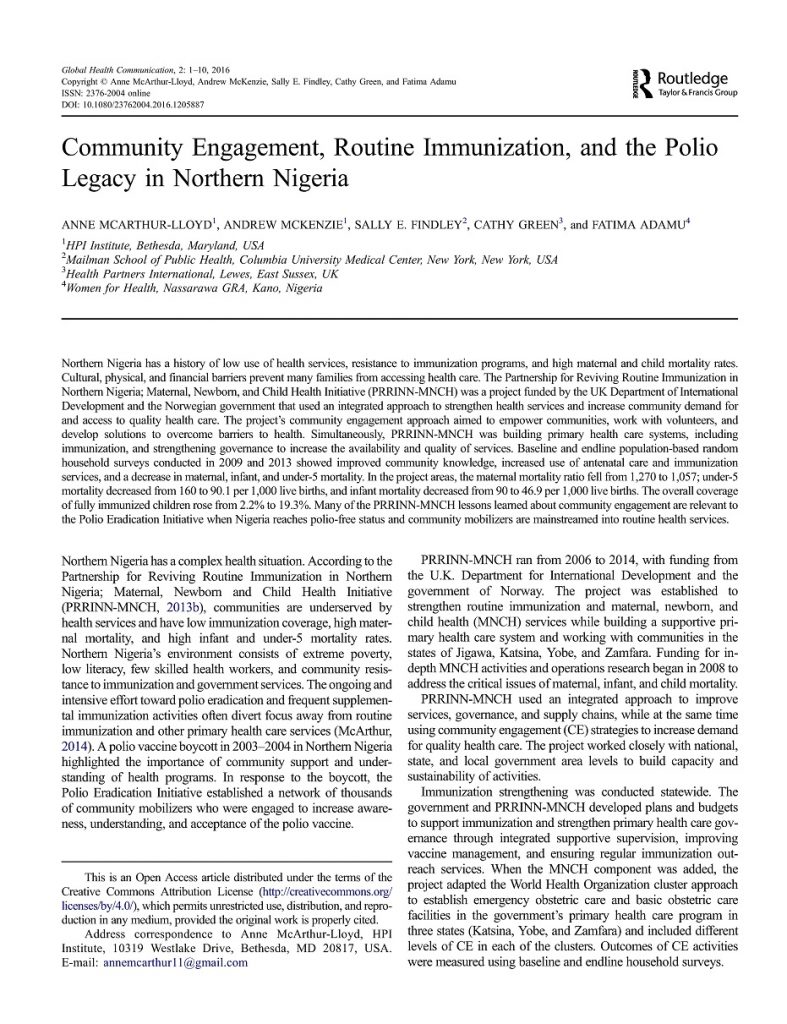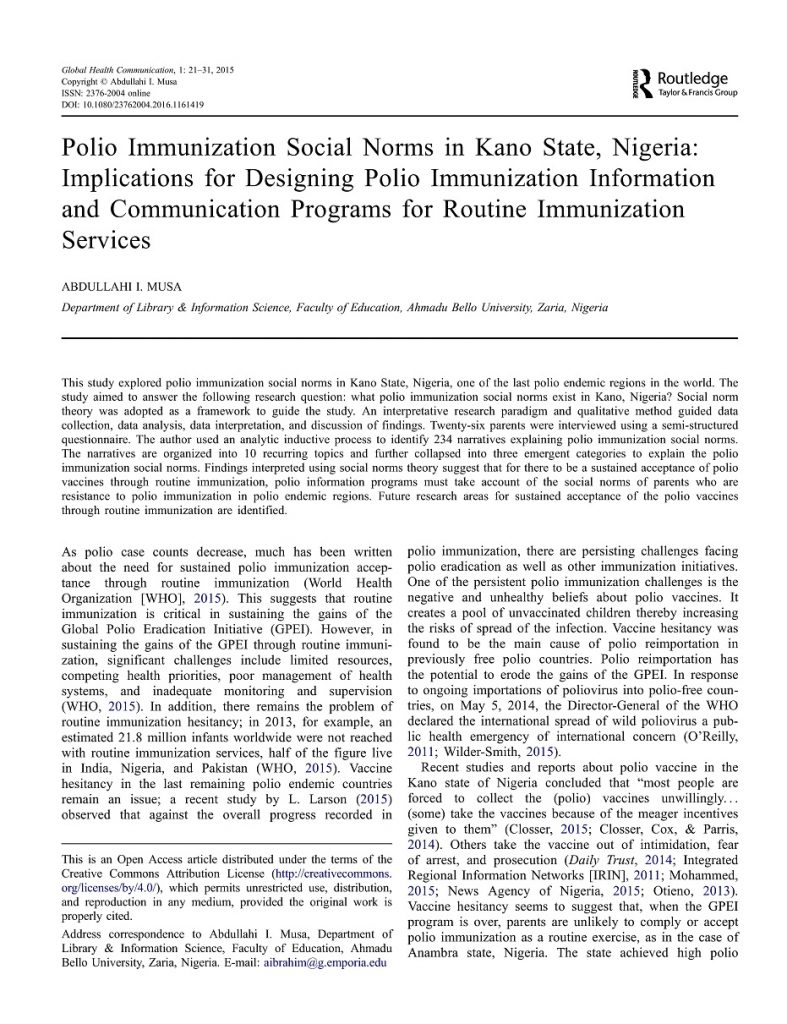
This study explored polio immunization social norms in Kano State, Nigeria, one of the last polio endemic regions in the world. The study aimed to answer the following research question: what polio immunization social norms exist in Kano, Nigeria To read the full, open access article in the journal Global Health Communication, click here. […]
Read More…
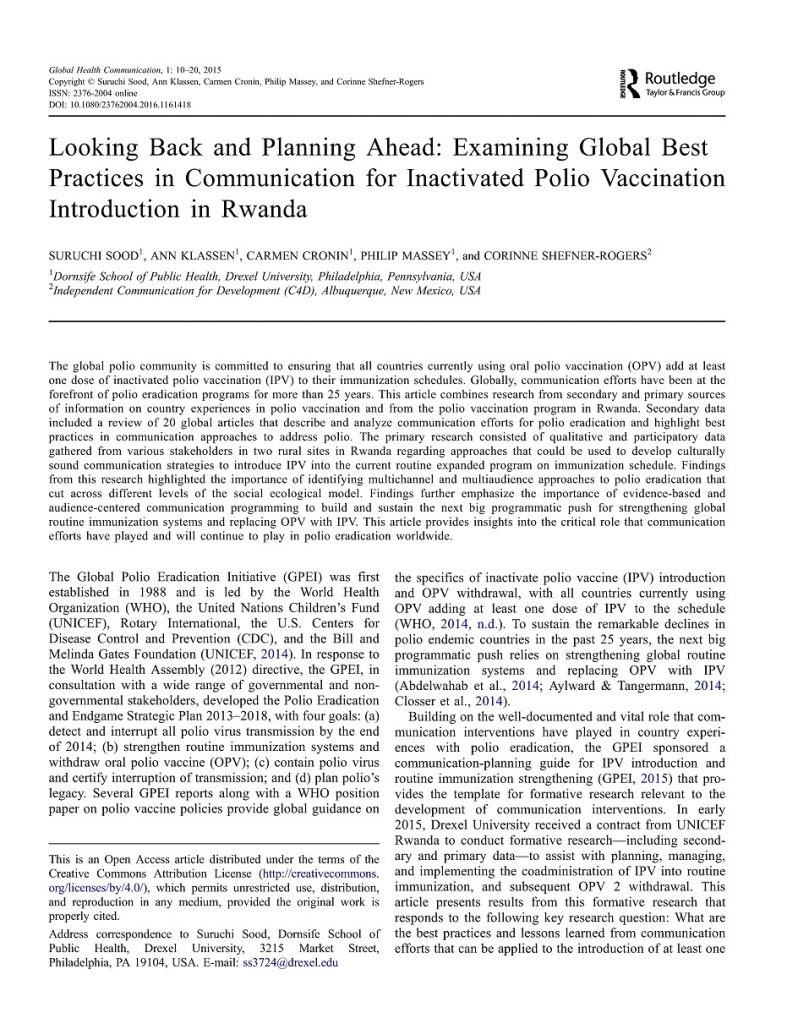
The global polio community is committed to ensuring that all countries currently using oral polio vaccination (OPV) add at least one dose of inactivated polio vaccination (IPV) to their immunization schedules. Globally, communication efforts have been at the forefront of polio eradication programs for more than 25 years. This article combines research from secondary and […]
Read More…
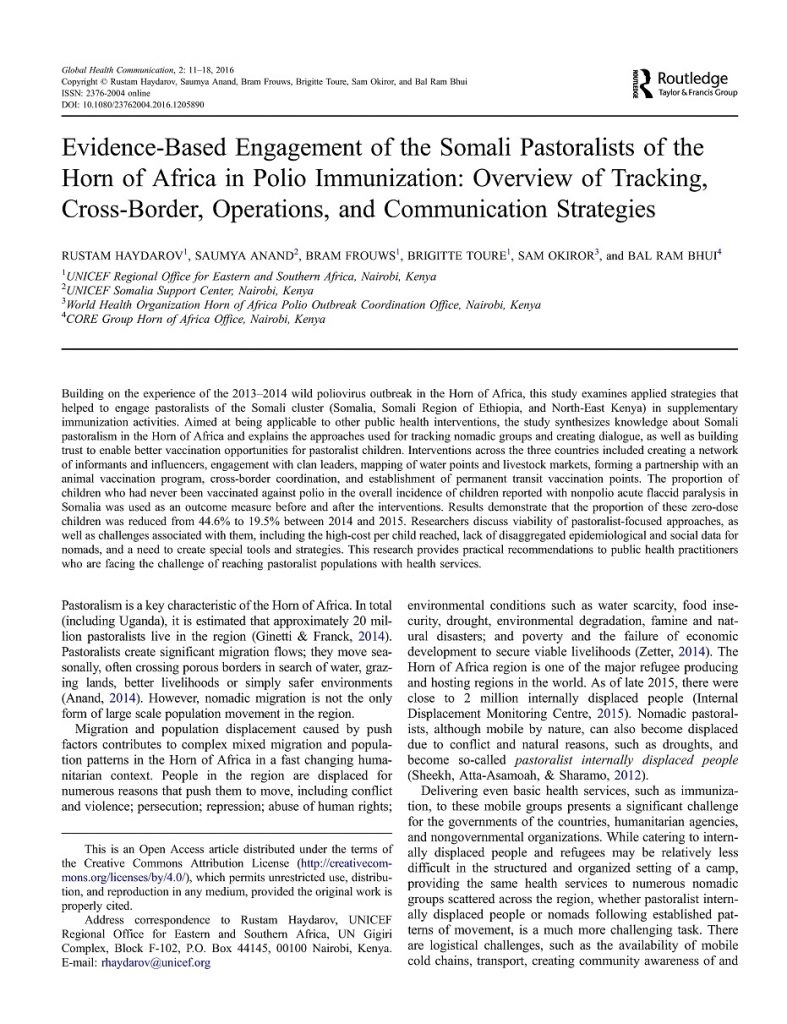
Building on the experience of the 2013–2014 wild poliovirus outbreak in the Horn of Africa, this study examines applied strategies that helped to engage pastoralists of the Somali cluster (Somalia, Somali Region of Ethiopia, and North-East Kenya) in supplementary immunization activities. Aimed at being applicable to other public health interventions, the study synthesizes knowledge about […]
Read More…
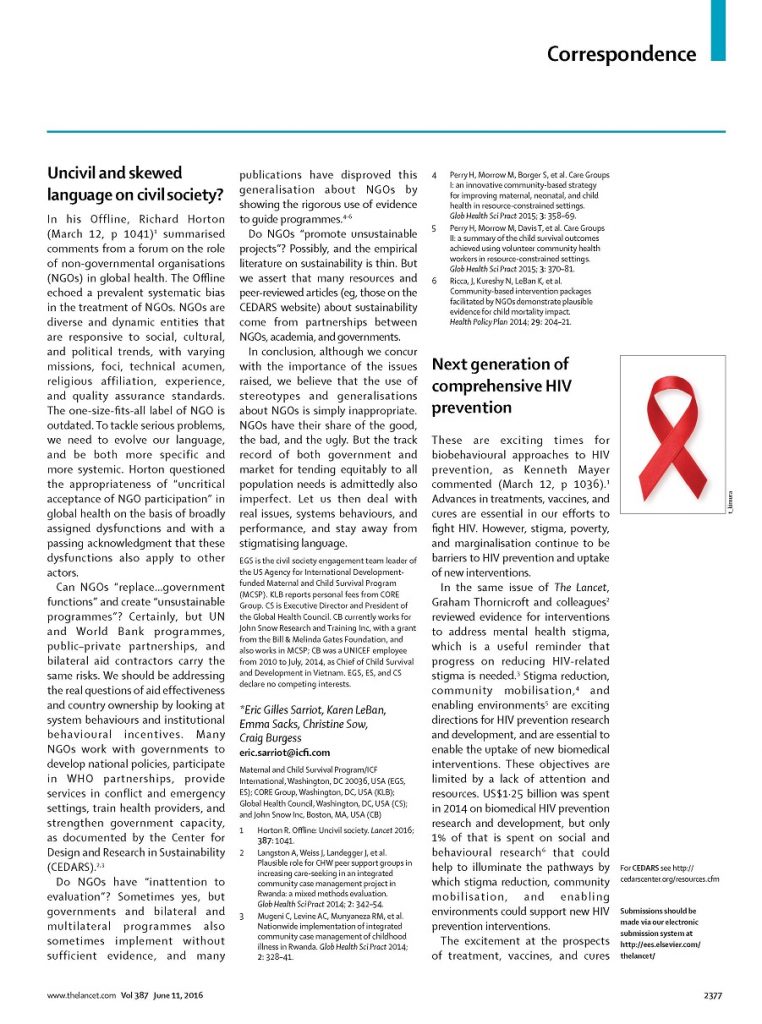
Commentary from MCSP staff published in the June 11, 2016 online Lancet on the “inappropriate” stereotyping and generalizing about nongovernmental organizations. To read the one-page correspondence, click here. […]
Read More…
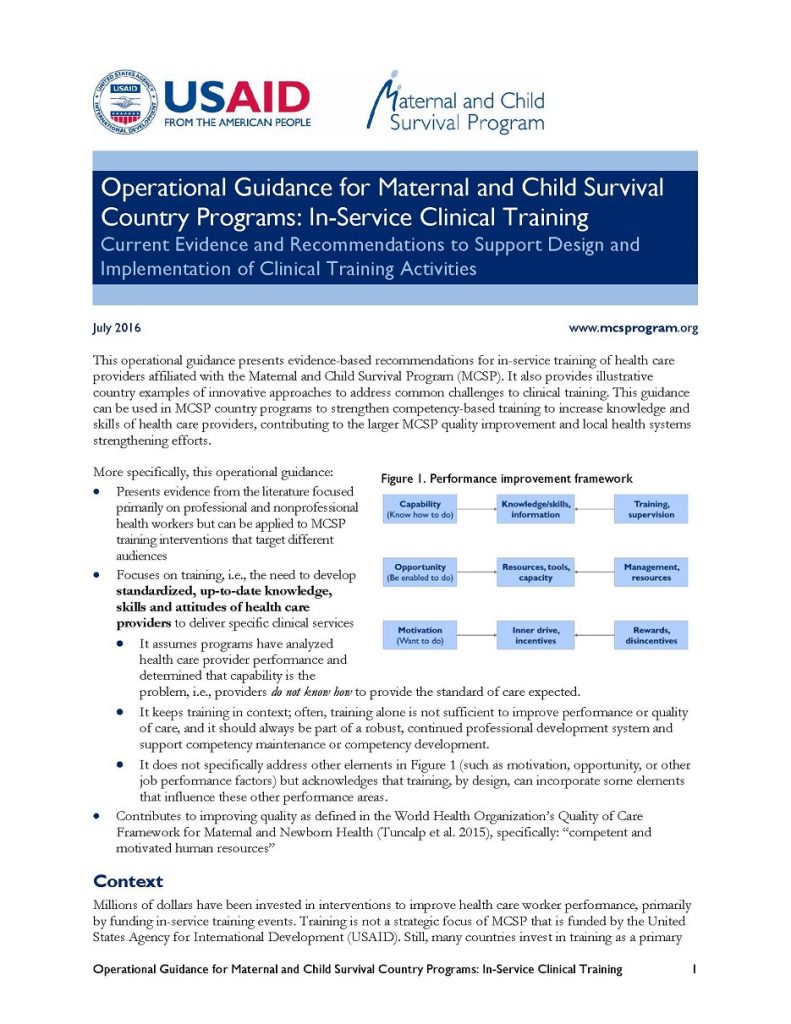
This operational guidance presents evidence-based recommendations for in-service training of health care providers affiliated with MCSP. It also provides illustrative country examples of innovative approaches to address common challenges to clinical training. This guidance can be used in MCSP country programs to strengthen competency-based training to increase knowledge and skills of health care providers, contributing […]
Read More…
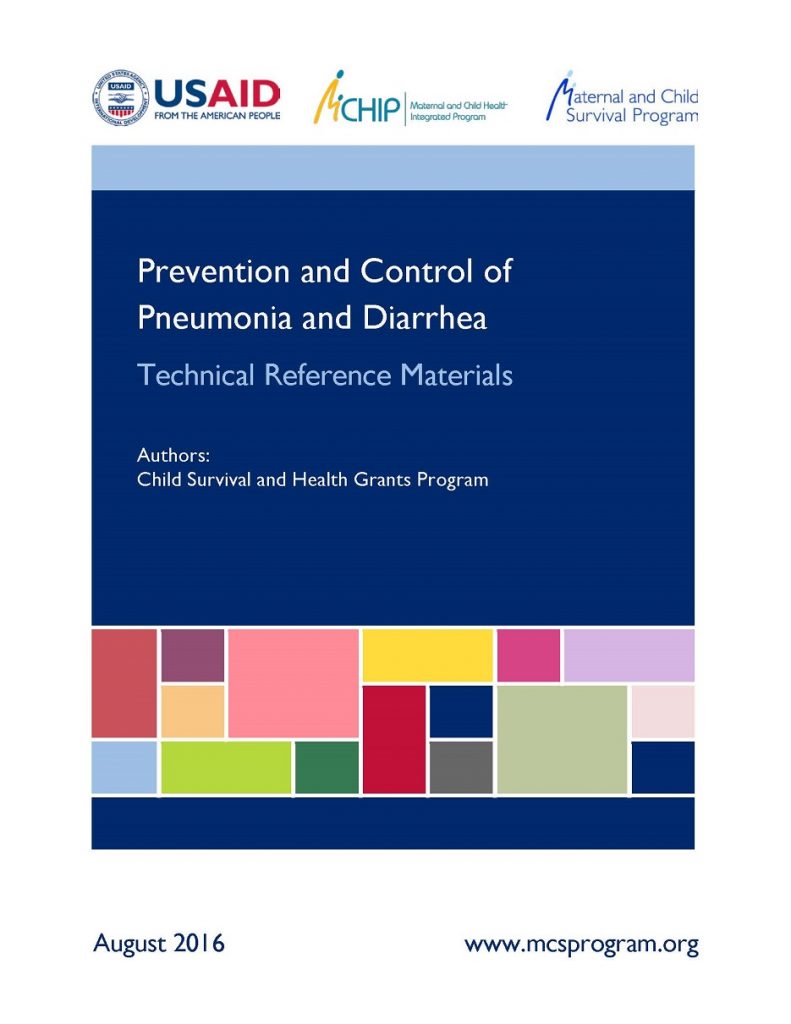
These resources act as guides to help program planners and implementers consider the many elements in a particular technical area of the Child Survival and Health Grants Program. They are not an official policy for practice; rather, they are basic, everyday summaries to be used as field reference documents. They may also be accessed in […]
Read More…
